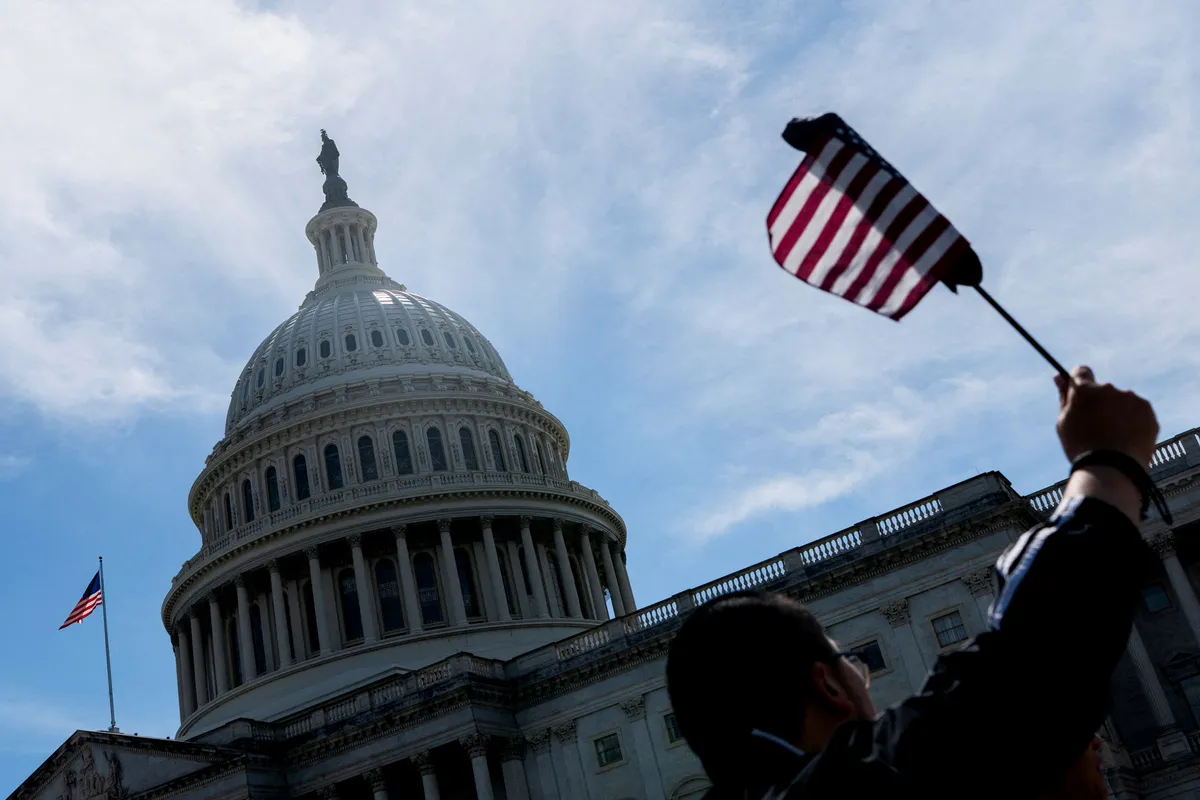U.S. Senate Passes Bipartisan Stablecoin Bill in Landmark for Digital-Asset Legislation
U.S. Senate Passes Bipartisan Stablecoin Bill in Landmark for Digital-Asset Legislation
By
Leah Rosenfeld
Last updated:
September 30, 2025
First Published:
September 30, 2025

Photo: USA Today
A Historic Legislative Milestone
On June 17, 2025, the U.S. Senate passed the Guiding and Establishing National Innovation for U.S. Stablecoins (GENIUS) Act with a 68–30 vote. This legislation represents the first significant federal effort to regulate stablecoins, digital assets pegged to the U.S. dollar, and is poised to set a precedent for future cryptocurrency regulations.
Defining Payment Stablecoins
The GENIUS Act focuses on "payment stablecoins," which are digital tokens designed to maintain a stable value by being redeemable for a fixed amount of fiat currency. The bill mandates that issuers of these stablecoins must hold reserves in liquid assets like U.S. dollars or Treasury bills, ensuring the tokens' stability and protecting consumers from potential collapses.
Regulatory Oversight and Compliance
Under the GENIUS Act, only approved entities, known as "permitted payment stablecoin issuers," are authorized to issue stablecoins in the United States. The legislation grants the U.S. Treasury Department the authority to enforce compliance, including imposing penalties for violations. It also empowers the Treasury to designate noncompliant foreign issuers, prohibiting their stablecoins from being offered or sold in the U.S.
Consumer Protections and Transparency
To enhance transparency and protect consumers, the GENIUS Act requires stablecoin issuers to disclose their reserve compositions on a monthly basis. This provision aims to prevent scenarios similar to the Terra-Luna collapse in 2022, where lack of transparency led to significant financial losses.
Political Dynamics and Industry Influence
The passage of the GENIUS Act was influenced by substantial political contributions from the cryptocurrency industry, which ranked among the top political spenders during the 2024 campaign cycle. Notably, President Donald Trump has financial interests in the crypto sector, including a stake in World Liberty Financial, the issuer of the USD1 stablecoin. While the bill bans stablecoin ownership among members of Congress and the Executive Branch, it does not extend this prohibition to the President and Vice President, leading to concerns about potential conflicts of interest.
Bipartisan Support and Legislative Process
The GENIUS Act received bipartisan support in the Senate, with 18 Democrats joining Republicans in favor of the bill. The legislation now moves to the House of Representatives, where it may undergo revisions before being sent to President Trump for approval. The White House has expressed a desire to see the bill reach the President's desk before Congress's August recess.
Global Implications and Industry Reactions
The enactment of the GENIUS Act could have significant implications for the global cryptocurrency market. Industry leaders, including Treasury Secretary Scott Bessent and Coinbase CEO Brian Armstrong, have endorsed the bill, highlighting its potential to expand the U.S. stablecoin market to $2 trillion over the next decade. However, critics argue that the legislation may empower large technology companies in the financial sector and lack sufficient anti-money laundering protections.
Looking Ahead: Future Developments
As the GENIUS Act progresses through the legislative process, stakeholders in the cryptocurrency industry and beyond will be closely monitoring its developments. The bill's passage represents a significant step toward establishing a comprehensive regulatory framework for digital assets in the United States, with potential ripple effects on global financial markets.
A Turning Point in Cryptocurrency Regulation
The Senate's approval of the GENIUS Act marks a pivotal moment in the evolution of cryptocurrency regulation. By establishing a federal framework for stablecoins, the legislation aims to provide clarity and stability to the digital asset market, balancing innovation with consumer protection. As the bill moves through the legislative process, its outcomes will likely shape the future of cryptocurrency regulation in the United States and influence global standards.
Popular articles
Subscribe to unlock premium content
Disney’s Timeless Magic and How the Entertainment Giant Continues to Shape Culture and Innovation

Imran Khan’s Economic Missteps Amid Political Chaos in Pakistan

The Philippines’ Digital Shift How Remittances and BPO Are Fueling Growth

Disney’s Timeless Magic and How the Entertainment Giant Continues to Shape Culture and Innovation

Imran Khan’s Economic Missteps Amid Political Chaos in Pakistan

Disney’s Timeless Magic and How the Entertainment Giant Continues to Shape Culture and Innovation









